Kuichirô Kishida
Nacimiento : 1907-01-18, Kyoto Prefecture, Japan
Muerte : 1996-10-28
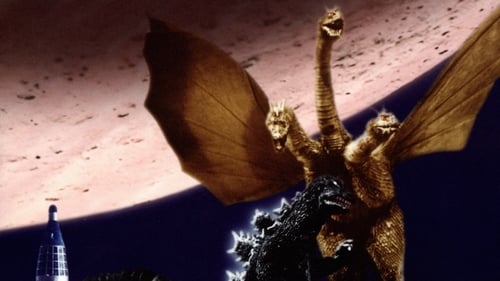
Lighting Technician
Dos astronautas, uno norteamericano y otro japonés, viajan hasta el Planeta X, un nuevo astro que ha surgido más allá de Júpiter. Allí descubren una civilización extraterrestre, los X-iens, que vive en un complejo mundo subterráneo protegiéndose de las desastrosas condiciones de la superficie, dominada por una destructiva criatura monstruosa que han bautizado como Monster Zero.
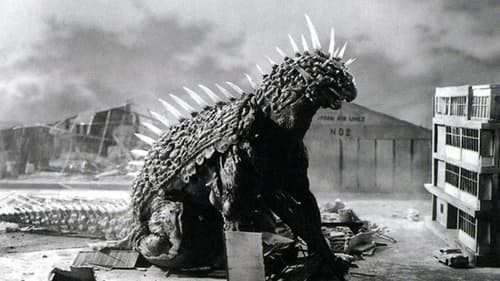
Lighting Technician
When a rare species of butterfly is found in a mysterious valley in Japan, a pair of entomologists go to investigate and find more. They discover Varan, a giant monster, Who decided to leave the valley and head straight for Tokyo.

Lighting Technician
An Ishiro Honda film.

Lighting Technician
Aiko, a bar hostess, falls for the son of a company president who also keeps a mistress, and whose family disapproves of his relationship with the bar hostess.

Lighting Technician
The actor Koheiji is terribly in love with the wife of his best friend, the playwright Takuro; to get her, he would even kill Takuro.
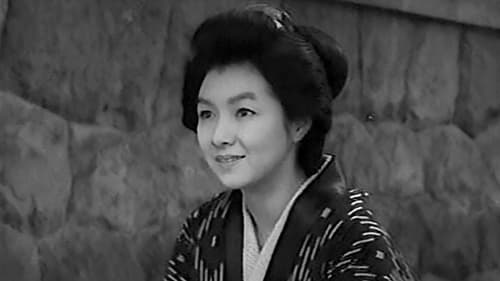
Lighting Technician
A woman marries, gives birth to a stillborn child, and divorces, falls in love with a hotel-keeper, only to find herself subordinated to his drive for success, takes up with a tailor who cannot console himself with her strong personality.

Visual Effects
Ed Goldman vio el filme Gojira en un cine asiático de Los Ángeles y la compró inmediatamente para volver a vender a Jewell Enterprises, pruductora y distribuidora de explotations. Era un buen momento para las monster movies, pero las referencias a la bomba atómica y que fuera una película 100% japonesa (los estadounidenses todavía recordaban Pearl Harbor), los hizo dudar. Finalmente decidieron eliminar toda referencia antinuclear del film y añadir nuevos ajustes con el actor Raymond Burr (Perry Mason) haciendo de periodista, testigo occidental de todos los hechos. La película pierde todo el trasfondo social y crítico para convertirse en un mero entretenimiento; haciendo que la crítica destrozara el film pero que se convirtiera en un éxito de público. (FILMAFFINITY)

Special Effects
Ed Goldman vio el filme Gojira en un cine asiático de Los Ángeles y la compró inmediatamente para volver a vender a Jewell Enterprises, pruductora y distribuidora de explotations. Era un buen momento para las monster movies, pero las referencias a la bomba atómica y que fuera una película 100% japonesa (los estadounidenses todavía recordaban Pearl Harbor), los hizo dudar. Finalmente decidieron eliminar toda referencia antinuclear del film y añadir nuevos ajustes con el actor Raymond Burr (Perry Mason) haciendo de periodista, testigo occidental de todos los hechos. La película pierde todo el trasfondo social y crítico para convertirse en un mero entretenimiento; haciendo que la crítica destrozara el film pero que se convirtiera en un éxito de público. (FILMAFFINITY)

Gaffer
A human billboard and a shoeshine girl met a kid of five who got separated from her mother at a street of Ginza. They try to find a mother in a crowded town...

Lighting Technician
Parent apathy to sexual education leads to various troubles for the young cast.

Lighting Technician
A high-born woman named Okuni travels around the country with Gohei, a samurai retainer who is in service to her. They are in search of Tomonojo, who has killed the man who was Okuni’s husband and Gohei’s master, and they cannot return to their lord’s home until they have fulfilled their duty of hunting down and killing Tomonojo.

Lighting Technician
The troubled relationship between a writer and his ballet teacher wife, who has for years loved another man, finally leads to the breakup of the family.

Lighting Technician
Though recognized worldwide almost exclusively for his colorful kaiju fare, director Ishirō Honda (Godzilla, Rodan, Mothra) was a natural humanist with a particular understanding of the relationship between people and their social environs. His debut fiction feature, The Blue Pearl (Aoi Shinju) – virtually unseen in the west until now – depicts the melodramatic, but keenly-observed interplay between a young man from Tokyo and two ama (pearl divers; literally “women of the sea”) in a superstitious coastal town. Though raised within the same tradition-bound crucible, the two women – Noe and Riu – are portrayed as diametric opposites; the former meek but affectionate, the latter strong-willed but jaded by a tryst with metropolitan life. Nonetheless, Honda provides equal weight to their desires and their ambitions to break free from the social mold imposed upon them from birth.

Lighting Camera
A Japanese adaptation of Guy de Maupassant's short story Boule de Suif, directed by Kimura Keigo

Lighting Technician
Wataru Naohiko who has the prosecutor general as his father became a young composer and its symphony "saint" invoked the world echoed. But his disciple Uchiyama and his best friend prosecutor Daisuke Toki accused his music as a sesame of pause-only technique, not a truly heart-hungry art.

Lighting Technician
Woman melodrama by Shiro Toyoda
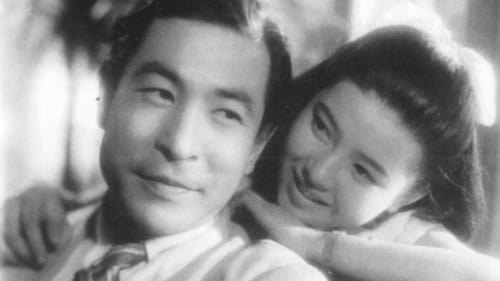
Lighting Director
During his summer holiday, Kawasaki Ryuichi (Ryuzaki Ichiro), a handsome engineer in his late twenties, visits his teacher and mentor, Professor Inagaki (Sugai Ichiro), at his seaside home. There he meets the professor's lovely young wife, Sachiko (Hamada Yuriko), and is unsettled by the striking resemblance she bears to his wife, who died three years earlier. Attracted to Sachiko, he does his best to hide his feelings. The couple, however, senses a deep-seated melancholy in him. Attributing it to the loss of his wife, they urge him to marry their niece, Kaoru, but he is not interested. Shortly after, Fumiko , Sachiko's older sister, realizes that Sachiko and Kawasaki have feelings for each other, but she keeps her counsel. One day Kawasaki, Sachiko, and Kaoru go boating when a storm forces them to stay overnight at a hotel. Unable to sleep, Kawasaki takes a walk along the beach where he finds Sachiko, also unable to sleep. He declares his love for her.
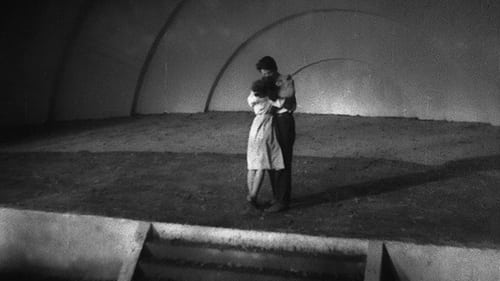
Lighting Artist
En tiempos de postguerra, dos enamorados pasan juntos un domingo, esperando que sea un día inolvidable. Están llenos de sueños e ilusiones e intentan ser felices. Pese a sus problemas y contratiempos, pese a las preocupaciones derivadas de los bombardeos atómicos de Hiroshima y Nagasaki, su amor les permite concebir ilusiones sobre un futuro mejor.

Lighting Technician
A small community in wartime Japan learn how to make do with less.

Lighting Technician
A self-absorbed young actor humiliates an elderly Noh performer, who then commits suicide. His act of cruelty compels his father to disown him, leading the once promising actor to a life on the streets. But his desire to win back the respect of his father and the affection of the dead actor's daughter pushes him toward a more noble existence. Naruse employed a delicately structured mise-en-scene in this family melodrama, which evokes the work of Josef von Sternberg.

Lighting Technician

Lighting Camera
The title might sound shocking, but the red hands mean, the hands which drag fishnets. Ohama, 15 or 16 years old girl lost her family and lived alone in a fishermen's village. She is a strong-minded girl and very popular among young children.
I guess that this story is one of the origins of girl's manga in the 1950s in which I belonged to the first generation of Japanese story manga.

Lighting Technician
1941 Toho adaptation of Natsume's novel.

Lighting Technician
Japanese propaganda film

Lighting Technician
Song of the White Orchid was a co-production of Toho and Mantetsu, the railway that served the colonial region of Manchuria, and the first film in the Kazuo Hasegawa/Shirley Yamaguchi (Ri Koran) “Continental Trilogy.” Handsome Hasegawa (representing Japan) runs up against an impertinent Yamaguchi (representing the continent); not surprisingly, in the course of the film the woman comes around and realizes the benevolent intentions of the Japanese. In Song of the White Orchid Yamaguchi leaves Hasegawa, who plays an expatriate working for the railway, because of a misunderstanding. She joins a communist guerilla group plotting to blow up the Manchurian railway. Learning of the subterfuge that led to the misunderstanding, she renews her faith in Hasegawa—and by extension Japan—and tries to undermine the plot.
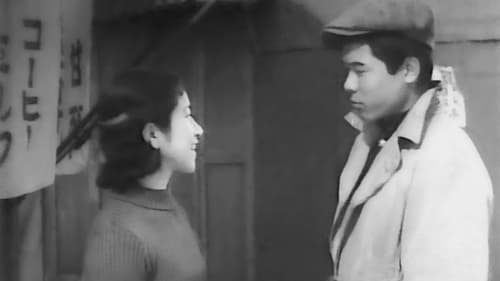
Lighting Technician
The Whole Family Works, Mikio Naruse's adaptation of a Sunao Tokunaga novel, feels more of a piece with the writer/director's quietly observant and psychologically charged later work. For the Naruse-familiar, it is an anomaly only in its placement within his filmography—indeed, this could be a film made by the elder, stasis-minded Naruse momentarily inhabiting, through a metaphysical twist of fate, his stylistically exuberant younger self. Set in depression-era Japan around the time of the Sino-Japanese War (which the director evokes, during a brief dream sequence, by dissolving between children's war games and actual adult warfare), The Whole Family Works gently observes a family coming apart at the seams. Ishimura (Musei Tokugawa) is the jobless father of nine children.


















